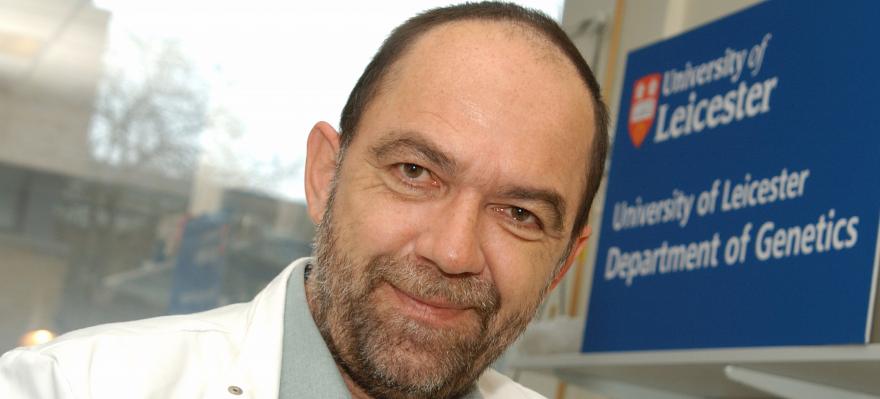Today we almost take DNA testing in our stride rather than appreciating it for the marvel of modern science it truly is.
TV shows like Jeremy Kyle have brought the pioneering work to the masses for entertainment, and thanks to detective shows like CSI, we all feel like we have a bit of the DNA expert in us.
Such is its ubiquity that we tend not to appreciate quite how recent the discovery was and just how groundbreaking the discipline is. Sir Alec Jeffreys is the academic who pioneered DNA testing, but his path to genetic fingerprinting discovery was not, initially, straightforward.
Academia
His distinguished scientific career began when he won a scholarship to read biochemistry at Merton College, Oxford, in 1968, but on completion of his degree he realised that biochemistry was not the research subject he wished to pursue.
The genetic element of his degree was what excited and inspired Sir Alec most, and this was the primary focus of his PhD. On completion of his studies he left Oxford to become a research fellow at the University of Amsterdam where he worked on mammalian genes with Dr, now Professor, Richard Flavell.
In 1977, Sir Alec moved again, this time to the University of Leicester, where he had been offered a temporary lectureship. He remained there for the rest of his illustrious 35-year career, rising to the post of Professor.
Eureka moment
Sir Alec was allowed a significant amount of freedom to pursue his field of interest at Leicester, and he decided to focus on the inherited variation of genes, in particular, DNA. In 1977, he discovered inherited DNA variation in one of his lab technicians.
In an interview with the University of Leicester, Sir Alec describes the discovery of the first genetic fingerprint thus: "My life changed on Monday morning at 9.05 am, 10 September 1984. What emerged was the world's first genetic fingerprint. In science it is unusual to have such a 'eureka' moment.
“We were getting extraordinarily variable patterns of DNA, including from our technician and her mother and father, as well as from non-human samples. My first reaction to the results was 'this is too complicated', and then the penny dropped and I realised we had genetic fingerprinting."
Genetic Profiling
Although 99.9% of human DNA sequences are the same for every person, Sir Alec realised that the variable 0.1% is enough to distinguish individuals from one another.
After the first immigration and paternity cases had been proven using genetic fingerprinting, Sir Alec’s department was swamped with requests to assist with other cases. This continued until 1987 when ICI, now Astra Zeneca, was awarded a licence to establish Cellmark, the world’s first commercial DNA testing company.
In 1985, Sir Alec and his team realised that genetic fingerprinting, as it was, required further refinement and development if it was going to be used by forensic scientists. They named this new process ‘genetic profiling’.
Justice
The Colin Pitchfork case was the first high profile case where genetic profiling was used to prove the innocence of one man and the guilt of another. Pitchfork was the first person to be convicted of a crime based on DNA profiling.
This was and still is a notorious case; two teenage girls had been raped and murdered in the Enderby area. A suspect had confessed to one murder but not the other. The police decided to use genetic profiling to prove his guilt; instead it proved his innocence and Pitchfork’s guilt.
The police decided to do mass DNA sample testing in order to find a genetic profile which matched the samples taken from the victims. Success seemed as likely as finding the proverbial needle in a haystack. However, Colin Pitchfork was overheard in a pub boasting about persuading another man to pretend to be him and give a sample. He was subsequently arrested, tested, convicted and sentenced to 30 years in prison.
During his distinguished career, Sir Alec won a number of prestigious prizes and awards including Fellowship of the Royal Society, Albert Einstein World Award for Science, Pride of Britain Lifetime Achievement Award, The Copley Medal, and the Millenium Prize Laureateship for genetic fingerprinting.
Photo credit: University of Leicester
His discovery has proved to be invaluable for the justice system, and has also helped private clients find truth and resolution. For more information on DNA testing options available, please call us on 0203 4243 470.

